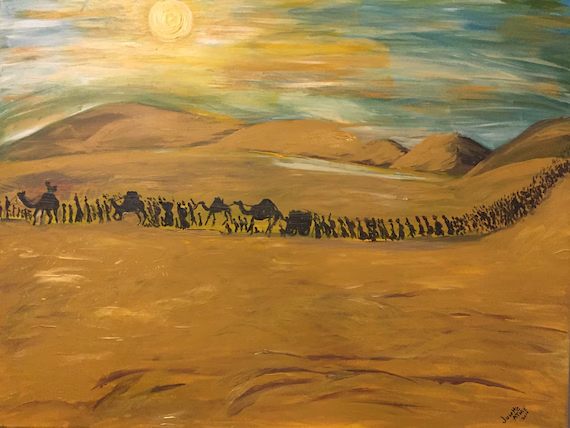On the Road to Jericho
When Jesus and his disciples were walking to Jericho, a huge crowd followed them, all talking and asking questions.
Sitting by the dusty road was a blind man, who couldn't work and each day begged for food.
When he heard the noisy people coming down the road, he asked; 'What's going on? What can you see?
'It's Jesus, someone told him. 'He's coming this way. The blind man had heard of Jesus and began to shout; 'Jesus of Nazareth, have pity on me'.
People told him to be quiet, but he only shouted more loudly, again and again. 'Jesus, have pity on me'.
Jesus heard him and asked a disciple to bring the man to him. When he came, Jesus said; 'What do you want me to do for you?
'I want you to make me able to see, answered the man. 'So you shall, said Jesus. 'Your faith has done this for you. At once the man regained his sight.
Joyfully he joined the crowd around Jesus, saying prayers of thanks to God.
A very rich tax collector from Jericho, named Zacchaeus, wanted to see Jesus. He was a small man and he couldn't see Jesus because of all the people around him.
He ran ahead of the crowd and climbed up a tree, knowing Jesus would come that way.
When Jesus walked under the tree, he looked up and saw Zacchaeus sitting on the branches. 'Zacchaeus, come down, he said. 'Take me to your house, I want to stay with you.
So they went to his house and Zacchaeus gave half of all his possessions, to the poor and offered to repay four times over everyone, whom he had made pay too much tax.











Comments
Post a Comment